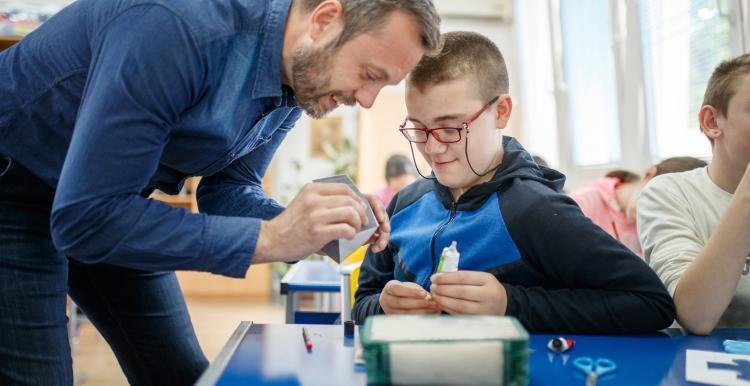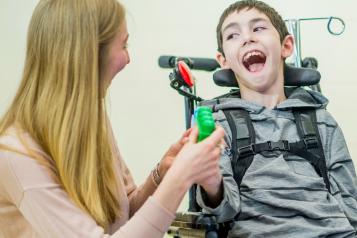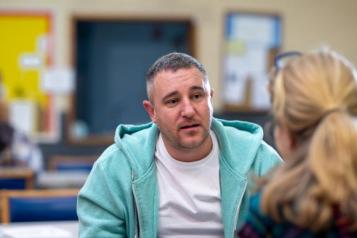What are parents of children with special educational needs and disabilities telling us?

The law states that children and young people with Special Educational Needs (SEN) must get extra help and support with their education. SEN is defined as having learning difficulties or disabilities that make learning harder for a child, compared to other children of their age. Sometimes this is more broadly referred to as SEND.
SEN support for children and young people has increased, from 1.3 million to 1.7 million over the past nine years. The Local Government Association has outlined how the increase has affected local council budgets and has called for reform.
The Government intends to publish an Education White Paper in the autumn, which will outline proposed reforms to support for SEN pupils, amongst other reforms to education.
While SEN is largely the responsibility of the education system, there is a crossover with health and social care regarding the support that children and young people need. We looked at what parents of children with SEND are telling us.
Educational, Health and Care (EHC) plans
By law, all schools in England must support children with special educational needs. Schools can use up to £6,000 from their own budget per pupil to provide this support. If a child's needs go beyond that budget, they may need an EHC plan to add extra support. This is a legal document that sets out the additional support that SEN children need across education, health and social care.
Of the 1.7 million children and young people who receive SEN support, over half a million currently have an EHC plan (638,745 people aged 0-25).
We've heard lots about EHC plans from parents, and the difficulties they have faced in trying to secure them:
Delays and inadequate support
Although councils are legally required to respond to requests for an EHC plan assessment within 20 weeks, some parents told us that their applications for EHC plans took up to several years. It could be a complicated process.
"Our son waited over twice the legal time frame for an EHCP which then didn't name any school. The LA seems unable to follow any kind of statutory guidance and unable to act transparently. The LA told us in writing provision was agreed, then apparently retracted this without explanation." – Story shared with Healthwatch Portsmouth
Once they received their EHC plan, some parents told us that they were not given enough money, forcing them to go into debt in order to access the therapies their child needed.
People told us about examples of EHC plan reviews which took little account of mental health. This lack of joined-up care can leave already vulnerable children without support needed to address additional, or knock-on effects on mental health.
Support as children become young people
The pressure on parents to manage their children's needs can grow as their children get older, if they lose support that was previously available. Young people with special educational needs and disabilities do not stop needing support as they grow older. However, the systems they are a part of and the support available shift as people age.
A recent report by the Education Select Committee found that often Care can decline at 16, although the law states that is should be provided until the age of 25. This transition between services or losing support can be difficult. We heard from people who struggled to navigate these changes and were left without support, unsure how to secure continuing care.
We have seen experiences of transitioning to adulthood can differ according to location. For example, a report from Healthwatch Tower Hamlets suggested people were not happy with support in transitioning to adulthood. Whereas research from Healthwatch Gateshead showed overall satisfaction with this support.
The difficulties people faced included a lack of easily accessible information and resources, and a lack of sufficient planning. A case of too little too late meant that people were leaving children's SEND support without anything on the other side.
Appropriate care from healthcare professionals
In the Education Committee's report, it is acknowledged that health services have not been prioritising SEND. This can contribute to families' difficulty in getting the support they need and impact children's development.
This is consistent with stories we have heard.
Some parents told us that they feel their healthcare professionals do not have up-to-date SEN training, and this is impacting their child's wellbeing.
"We have been trying for several years to access CAMHS for our child with PDA who has now been out of school for 2 years as a result of his mental health and have not had a single appointment or letter regarding this ... We have found that many support services are not up-to-date with research and training in neurodiversity, and we have been more knowledgeable than the staff" – Story shared with Healthwatch Devon
A lack of understanding can mean that information is not communicated appropriately, and therefore, a true reflection of the young person's health may not be gathered:
We also heard that dentistry and oral health can be particularly difficult for children with SEND, often due to sensory needs or not understanding why they need to brush their teeth.
When health professionals are informed of a child's particular needs and know how to address them, healthcare experiences can be positive for children with SEND.
The impact of long waits for diagnoses
We also heard about long waits for diagnoses, which may come too late to have an impact with educational support. This seemed to be a particular issue for getting Autism, ADHD or combined autism and ADHD diagnoses. This shows how issues in healthcare can have a knock-on effect in other areas of children's lives.
"The waiting lists for ADHD assessment for children are estimated to be 5-8 years. This is insane - my daughter was referred in Y2 and we are desperate for a diagnosis before secondary school, so that the right support can be put in place." – Story shared with Healthwatch Sheffield
As there are different services for different conditions and ages, this can mean that children can fall through the gaps in support.
"CYPS [Children and Young People's Service] refuse to see child - the service says child's condition (neurodevelopmental disability with overlapping diagnosis of AuADD) has no moderate to severe impact on their daily life, so no role for CYPS or CAMHS [Child and Adolescent Mental Health Service] - child not been in school for 2.5 years!" – Story shared with Healthwatch Northumberland
Left undiagnosed or untreated can mean that children with SEND miss school – either regularly, or for large chunks of time. For children who may develop at a different rate than their peers, this can limit their progress and widen the gap between them and their peers in mainstream education.
"I have been trying to get an assessment for my daughter for autism and adhd I filled the paperwork in, school filled theirs in... The GP has lost the lot…. She has now left school completely and we are now in limbo" – Story shared with Healthwatch Rochdale
Conclusion
Insights show that adapted health support for children and young people with SEN is vital for many areas of their and their family's wellbeing.
The recent Education Select Committee report acknowledges many of the issues we have heard about, and we expect the upcoming Government education White Paper will further explore this topic.
Joined-up thinking and care are important for cross-sectional concerns – without it, young people with additional needs will fall through the gaps. SEND systems will work best with the full involvement of Integrated Care Boards.

